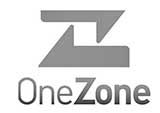IRA Required Minimum Distributions Meet Qualified Charitable Distribution
November 25, 2018 Author: Joe Paulson, CPA, Partner, Compass Pointe CPAs

In December 2017, the House passed the Tax Cuts and Jobs Act, which brought about the most sweeping tax reform since the 1980s. The bill includes significant tax law changes for both businesses and individuals. Because of the breadth and depth of the various tax law changes brought about by the Act, it is difficult to efficiently and effectively discuss the impact of these changes on all circumstances in just one or two paragraphs. This is part of an informative and meaningful series to help you understand how the Act impacts your business or individual tax situation.
In our previous post regarding payroll withholdings, we noted that the Tax Cuts and Jobs Act increased the standard deduction for taxpayers (ex. $12,000 for single filers; $24,000 for joint filers). Because of this, many taxpayers who are used to seeing itemized deductions on their tax return may only see a standard deduction in 2018. For those who are older than 70½ years of age and who have a charitable bent, your itemized deductions (which included your charitable giving) may now simply see this standard deduction.
With this in mind, we want to introduce you to what is called a Qualified Charitable Distribution (QCD) from your IRA. If you have a required minimum distribution, a QCD can be an effective tool to remove the IRA income from your taxable income by simply changing how you route your cash flow. You can distribute up to $100,000 on an annual basis under this program.
Here is how it works, the method is simple: Instead of taking a distribution from your IRA (which is taxable) to then turn around and write a check to the charity, call your broker or IRA trustee and have them write a check and mail it directly from your IRA straight to your qualified 501(c)(3) charity of choice.
While you cannot claim this giving on Schedule A – Itemized Deductions, this does remove the income from your adjusted gross income. Why does this matter? Because some of your other income (ex. Social Security benefits) is taxed based upon your adjusted gross income.
For more information, contact Compass Pointe CPAs at 317.881.6670.
Related Series on Tax Cuts and Jobs Act
Payroll Withholdings: A Warning to Dual Income Households
Depreciation: Why You May Not Want to Expense It All At Once
Qualified Business Income Deduction: Complicated Yet Impactful







